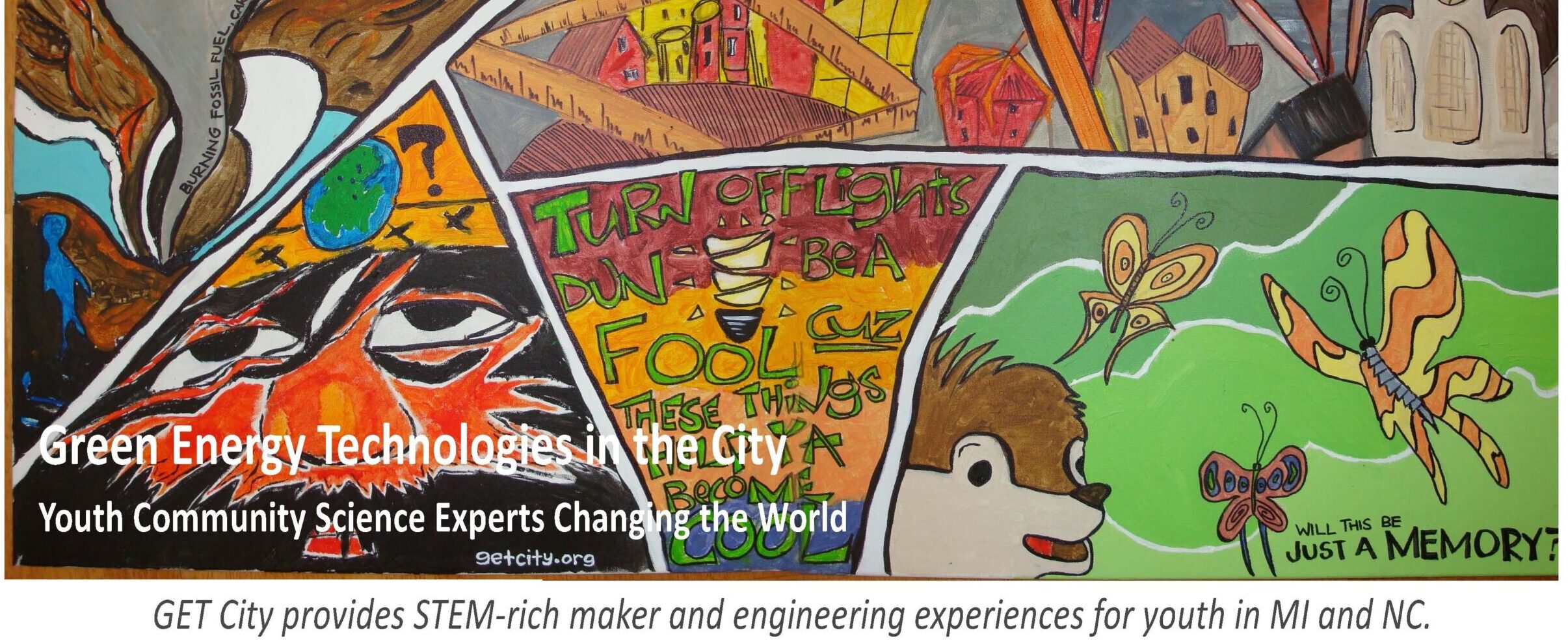The GET City Collaborative, founded in 2006, provides a series of after school and summer engineering design experiences for youth in MI and NC. We are a collaboration of the Boys and Girls Clubs of Lansing and Greensboro, the University of Michigan, Michigan State University and the City of Lansing.
GET City is based on the premise that youth are community science experts. Their experiences in families and community are powerful assets to leveraging science to make a difference in their lives.
We expose youth to advanced digital technology, maker spaces, and a broad community network of experts to advance their understandings of and interest in energy and engineering. We focus on three components of activity:
- Building STEM expertise: GET City provides authentic investigations of local relevance and global importance that foster deep engagement with energy and environmental issues related to engineering for sustainable communities.
- Building STEM citizenship: As part of their investigations, youth develop multi-media products that convey scientific messages meant to educate particular audiences on energy issues. These products address the question, “What’s important for others to know about my investigation?” and include digital public service announcements, podcasts, raps, etc.
- Educating others: Youth put their knowledge and products to work to educate target audiences in the final component: educating others through the GET City Education Network, which provides an audience for youth while conveying scientifically rigorous, cyber rich and youth-centered ideas that allow others to work towards green practices.
Additional program elements: (1) Mentors & career awareness, (2) Social networking & on-line presence, and (3) Family Involvement.
Through these elements, youth gain experiences with advanced IT skills (i.e., GIS, data management and acquisition systems, data analysis tools, and communication tools; have opportunities to develop scientific research skills and conceptual understandings related to energy technologies, production and sustainability; and develop job skills for the growing IT market and STEM careers.
Our work has been funded by the National Science Foundation, the Dart Community Foundation, and other local foundations.
